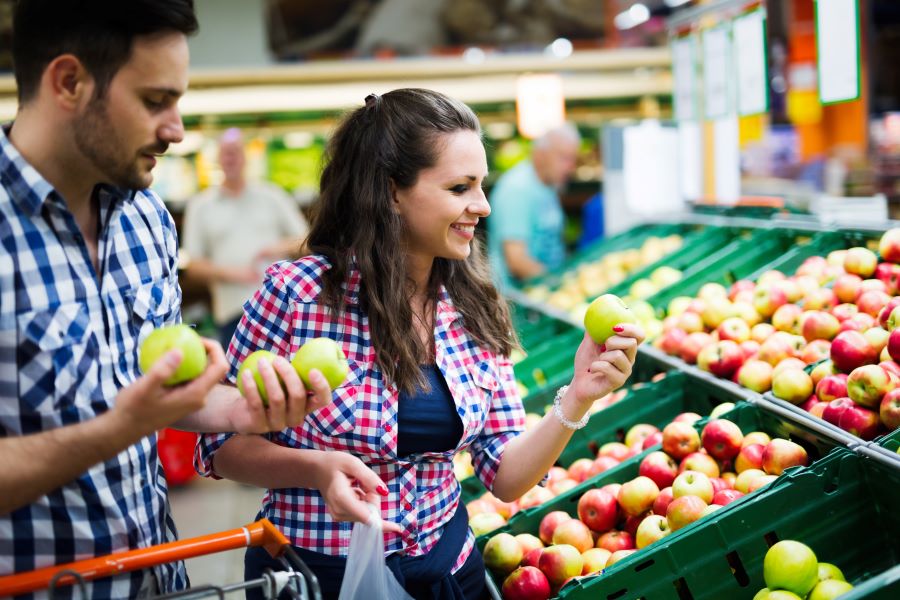
Eating fresh fruits and vegetables is key to maintaining a healthy lifestyle. However, improper storage can lead to quick spoilage, wasting both food and money. This blog post offers essential storage tips for fruits and vegetables to extend their freshness and flavor.
Apples
Apples should be stored in a cool, dark place. Ideally, they should be kept in the crisper drawer of your refrigerator. This helps them stay crisp and fresh for longer. If you have a large quantity, consider wrapping each apple in a paper towel to absorb excess moisture and prevent rot.
Berries
Berries, including strawberries, blueberries, and raspberries, are delicate and prone to mold. Store them in their original container or a breathable container in the refrigerator. Avoid washing them until right before you’re ready to eat them, as the moisture can accelerate spoilage.
Leafy Greens
Leafy greens like spinach, lettuce, and kale should be stored in the fridge. Wrap them loosely in a paper towel and then place them in a plastic bag. The paper towel will absorb excess moisture, which helps prevent wilting and decay.
Citrus Fruits
Citrus fruits like oranges, lemons, and limes are best kept in a cool, dry place. They do not need to be refrigerated and can last for several weeks when stored in a basket at room temperature.
Tomatoes
Never refrigerate tomatoes as it alters their texture and flavor. Instead, store them at room temperature on a counter away from direct sunlight. Place them stem-end up to prevent bruising and extend their shelf life.
Bananas
Bananas should be stored at room temperature until they ripen to your liking. If you want to slow the ripening process, place them in the refrigerator. The skin will darken, but the fruit inside will remain firm and sweet.
Root Vegetables
Root vegetables like potatoes, carrots, and beets should be stored in a cool, dark, and well-ventilated place, like a pantry or a cellar. Avoid storing them near onions, as the gases released can accelerate spoilage.
Avocados
Store unripe avocados at room temperature. Once they’re ripe, you can move them to the refrigerator to keep them fresh for a few more days. If you’ve cut an avocado, sprinkle lemon juice on the exposed flesh to prevent browning.
Storing fruits and vegetables correctly not only extends their shelf life but also maximizes their nutritional value. By following these simple storage tips, you can enjoy your favorite fruits and vegetables at their peak freshness and flavor. Happy eating!

Leave A Comment